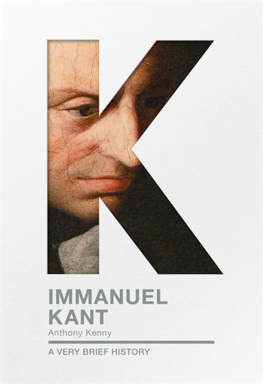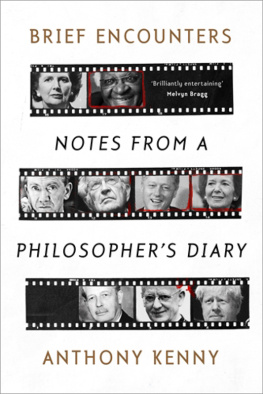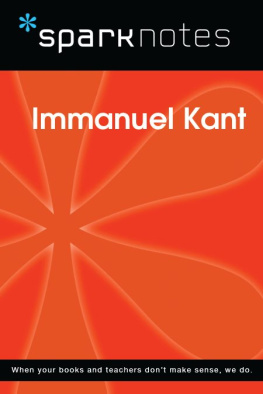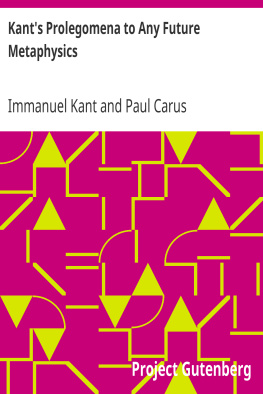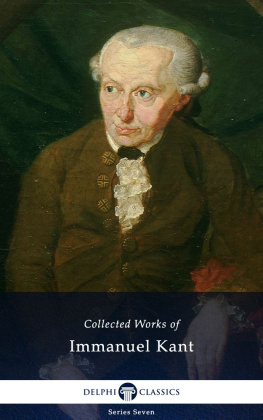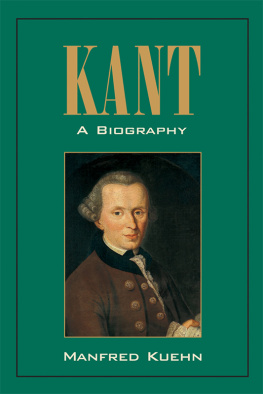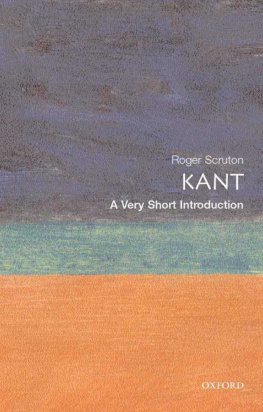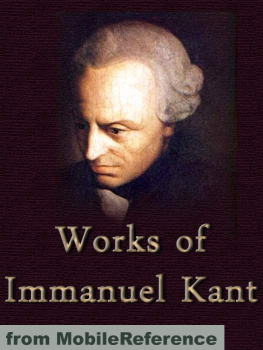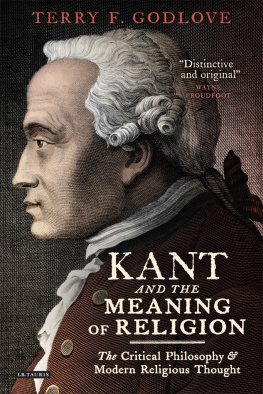Index
a priori vs a posteriori 17
ability 92
Absolute 76
actuality vs possibility 9
aesthetic 1922
analogies of experience 28
analytic vs dialectic 23
anthropology 23
anticipations of perception 289
antinomies 346, 578
appearance vs reality 212
apperception 26
Aquinas, St Thomas 7
architect vs creator 11, 39
arguments, cosmological vs ontological 78, 378
arithmetic 813
atomism 35
autonomy 45
axioms of intuition 28
beauty 502
free vs derivative 52
beginning of world 345
Berkeley, George 31
Boswell, James 16
Bradley, F. H. 79
categories 237
causation 24, 26, 29
ascending vs descending 57, 878
choice 91
Christianity 604, 978
church 63
classes 813
colonization 67
community, moral 93
concepts 20, 235
conditioning 36
Copernicus 16
copula 8, 37
cosmology 33
creation 5
culture 58
Darwin, Charles 967
death penalty 6970
deduction 24
democracy vs republic 667, 98
Descartes, Ren 4, 78, 31, 33
design 10, 57
desire 45
determinism 356, 48, 91
dialectic 329, 76
disinterestedness 50
dogmatism 37, 75
duty 413, 69
strict vs meritorious 42
eclipse 46
Einstein, Albert 86
empiricism 37, 7780
ends vs means 43
Enlightenment 12
enthusiasm 64
evil, propensity for 61
existence 8
experience 1718, 27
extensive magnitude 28
faith 63
historical vs moral 63
federalism 667
Fichte, G. W. 71
fire 4
Folk-spirit 77
Frederick the Great 4, 66
freedom 35, 468, 76, 91
Frege, Gottlob 813
French Revolution 16, 69, 71
friendship 71
gender policies 92
genius 54
geometry 81
German nation 77
Gibbon, Edward 16
God 711, 37, 489, 57, 958
Gdel, K. 83
goodness 501
Green, Joseph 13
Green, T. H. 78
Hamann, J. G. 6
happiness 41
heart 87
heaven 64
Hegel, G. W. F. 767
hell 64
Herder, J. G. 6
Herz, Marcus 15
Hume, David 6, 13, 26, 31, 78
idealism 31, 757
immortality 14, 34, 48
imperative, categorical vs hypothetical 413, 456
Incarnation 61
inner vs outer 31
intellect 14, 1718, 31
Jesus 3, 612, 98
jokes 13, 545
Jowett, Benjamin 79
judgement, faculty of 23, 569
judgements
analytic vs synthetic 17, 80
categorical vs hypothetical 25
universal vs particular 25
Julius Caesar 96
Kaiserlingk family 4
Kant, Immanuel
academic career 36, 1214
death 72
family 34, 72
finances 5, 13
works (in chronological order)
Estimation of Living Forces 4
General Natural History 5
Only Possible Argument 611, 37, 60
Dreams of a Spirit Seer 13
Sensory and Intellectual World 14
Critique of Pure Reason
1639
Prolegomena 40
Groundwork of the Metaphysic of Morals 404
Critique of Practical Reason 459, 60
Critique of Judgement 5060, 86
Religion within Boundaries 606, 97
Perpetual Peace 66, 98
Metaphysic of Morals 6871
Conflict of Faculties 71
kingdom of ends 43, 934
Knutzen, Martin 4
Knigsberg 35, 14
language 256, 89
Laplace, Pierre 5
law 456, 71
Leibniz, G. W. 4, 13, 14
logical positivism 79
logicism 813
Luther, Martin 3
lying 70
McTaggart, J. M. E. 79
mathematics 12, 1617, 778
matter of experience 20
matter of possibility 9
maximal greatness 956
maxims 413
medicine 71
metaphysics 7, 12, 16, 33
Mill, John Stuart 778
monads 14
moral law 41
morality 14, 41
and religion 60, 97
Mozart, W. A. 16
music 54
Napoleon 66
nature vs art 534
nebular theory 5
necessity vs contingency 369
Newton, Isaac 4, 12, 16
obligation 90
opportunity 92
paradox 83
paralogisms 334
perfection 8
personality 61
phenomena vs noumena 32,
47, 90
philosophy 889
physico-theology 10, 378, 589, 968
Pietists 3
Plantinga, Alvin 956
poetry 54
positing 8
possibility, logical vs real 89
possible worlds 96
postulates
of practical reason 48, 92
of thought 28
predicates 8, 24, 37
price
market price vs fancy price 44
vs worth 44
principles 247
prohibitions 93
projection 29
promises 42
psychology 33
punishment 69
purpose 10, 569
internal vs relative 56
Quine, W. V. O. 801
rainbow 21
randomness 91
reason 18, 33, 41
rebellion 69
religion 605, 958
natural vs revealed 60
republicanism 66
resurrection 62
Rousseau, Jean-Jacques 6, 13
Russell, Bertrand 83
scientism 88
scripture 63
sea breeze 11
self-consciousness 26
senses 18, 202, 85
outer vs inner 20
simplicity 59
sin, original 61
space 202, 856
special relativity 86
Spirit 62, 76
sublimity, mathematical vs dynamical 523
substance 24, 2930
succession 30
suicide 43
superstition 64
Swedenborg, Immanuel 13
synthetic a priori 1719, 512, 81
taste 50, 54
teleology 569, 868
theology 33, 71
thesis vs antithesis 347, 76
thing-in-itself 75, 89
thunder 53
time 202, 2930, 478,
856
transcendental 19, 24, 27
Turner, J. M. W. 16
US constitution 16
utilitarianism 78
Verification Principle 79
Voltaire 55
war 678, 70, 98
will, good 40, 58
Wimbledon 10
wine 13, 90
Wittgenstein, Ludwig 54, 79, 84, 889
Wolff, Christian 4
world-picture 84
zero 82
1
Kants early life
Immanuel Kant was born in 1724 in the town of Knigsberg near the eastern coast of the Baltic. A thriving centre of international trade, Knigsberg was then part of the young kingdom of Prussia, which was just beginning its long competition with Austria to become the leading German-speaking nation. The town has now changed its name to Kaliningrad and sits in an enclave of the Russian federation, rarely visited by foreigners except when Russia is hosting the World Cup.
Kants father was a master harness maker, prominent in the local guild. He brought up the young Immanuel as a Lutheran. Among Luthers main doctrines were that the human race was so corrupt by nature that it was impossible for a human being to keep all the commandments of God; and that it was only through faith in the merits of Jesus that a human being could be saved by the grace of God. The first of these doctrines, but not the second, remained a lifelong strand in Kants thought.
The Kant family belonged to a distinctively devout group of Lutherans known as Pietists. In later life Immanuel acknowledged a debt to the seriousness of the moral education he had received at home, though he disliked the introverted religiosity of the Pietist school to which he was sent.
During the years when Kant was at school two events stand out. In 1737 his mother died at the age of 40, having caught smallpox while on an errand of mercy to a sick friend. Three years later King Frederick William I of Prussia died, leaving the throne to his son, the future Frederick the Great. The new king was a paragon of enlightenment in the study and a ruthless aggressor on the battlefield. It was during his 46-year reign that Kants major works were written.

